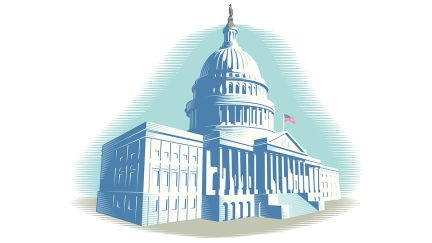Never miss a story — sign up for PLANADVISER newsletters to keep up on the latest retirement plan adviser news.
Advisory M&A News – 1/29/24
Bernstein Private Wealth Management expands ultra-high-net-worth platform; Cetera completes minority investment in Wilde Wealth Management Group; Wealth Enhancement Group announces addition of Shawn M. Scott team.
Bernstein Private Wealth Management Expands Ultrahigh-Net-Worth Platform
Bernstein Private Wealth Management, a unit of AllianceBernstein LP, announced the expansion of its ultra-high-net-worth platform. This initiative is supported by a new UHNW service team, which will be exclusively available to clients of the UHNW Platform.
Under the leadership of Aaron Bates, head of ultra-high-net-worth and growth strategies, the platform will fit into the firm’s existing UHNW, family offices and global families services. In coordination with the expansion, Bernstein has appointed three senior executives: Amanda Bohr, director of strategic partnerships; Jeremy Lam, director of credit; and Emily Neubert, national director of UHNW services.
“Clients today are increasingly looking for a unified wealth plan centered around legacy with the understanding that complexity is not always financial,” said Onur Erzan, head of global client group and private wealth at AllianceBernstein, in a statement. “That’s why our evolved UHNW Platform offers a more holistic approach to not only manage wealth but the anxieties that come with that wealth.”
Bernstein’s UHNW Platform currently serves more than 1,290 individuals and families with more than $37.9 billion in total assets and an average client tenure of 12 years.
Cetera Completes Minority Investment in Wilde Wealth Management Group
Cetera Financial Group announced it has completed a strategic, minority investment in Wilde Wealth Management, an independent wealth management firm based in Scottsdale, Arizona, managing more than $2.8 billion in assets under administration.
The firm serves as an Office of Supervisory Jurisdiction overseeing more than 42 advisers, with nine locations across the Southwest. Co-founder, CEO and Managing Principal Trevor Wilde leads the team, providing services such as legacy planning, tax planning and investment management services. Advisers with Wilde Wealth have been affiliated with Cetera Advisors since 2007.
Cetera offers advisers succession solutions, including adviser-to-adviser support, business continuity and full or partial sale options. Cetera has completed more than 12 such transactions in the past year.
“I am thrilled about the transformative impact our enhanced partnership with Cetera will bring, propelling our growing platform to become the preferred destination for top-tier advisors and high-net-worth clients alike,” Wilde said in a statement. “We look forward to serving clients and strategically growing our business together with Cetera for years to come.”
Wealth Enhancement Group Announces Addition of Shawn M. Scott Team
Wealth Enhancement Group announced the acquisition of the Shawn M. Scott Team, an investment advisory team in Cincinnati. The team oversees more than $136 million in client assets and is led by Shawn M. Scott, senior vice president.
“I am very excited to join Wealth Enhancement Group and leverage the extensive resources to better help professionals and business owners in the Cincinnati community,” Scott said in a statement.
For 25 years, Scott has offered clients with financial planning, asset management, wealth management and qualified retirement plan support. The addition of the Shawn M. Scott Team marked Wealth Enhancement Group’s 18th announced or closed acquisition of 2023.
“Wealth Enhancement Group is pleased to welcome Shawn aboard. His considerable knowledge and experience will benefit the firm as we continue to focus on delivering comprehensive financial guidance to our clients,” Jeff Dekko, CEO of Wealth Enhancement Group, said in a statement. “We look forward to his contributions to client outcomes and company progress in the years ahead.”
You Might Also Like:

Advisory M&A News – 2/11/25

Advisory M&A News – 1/21/25





